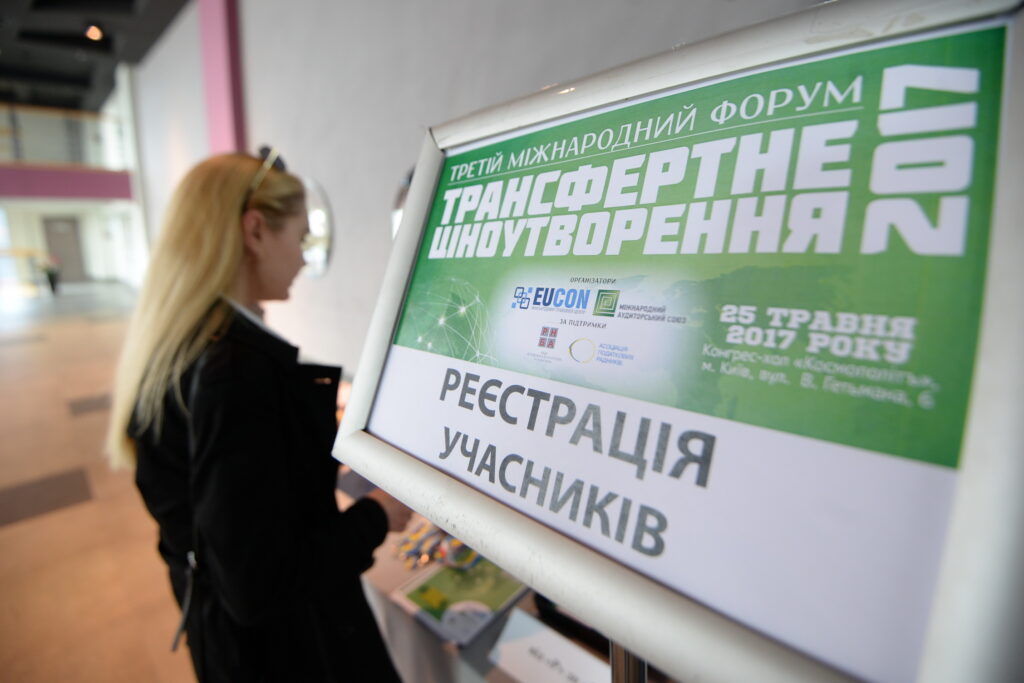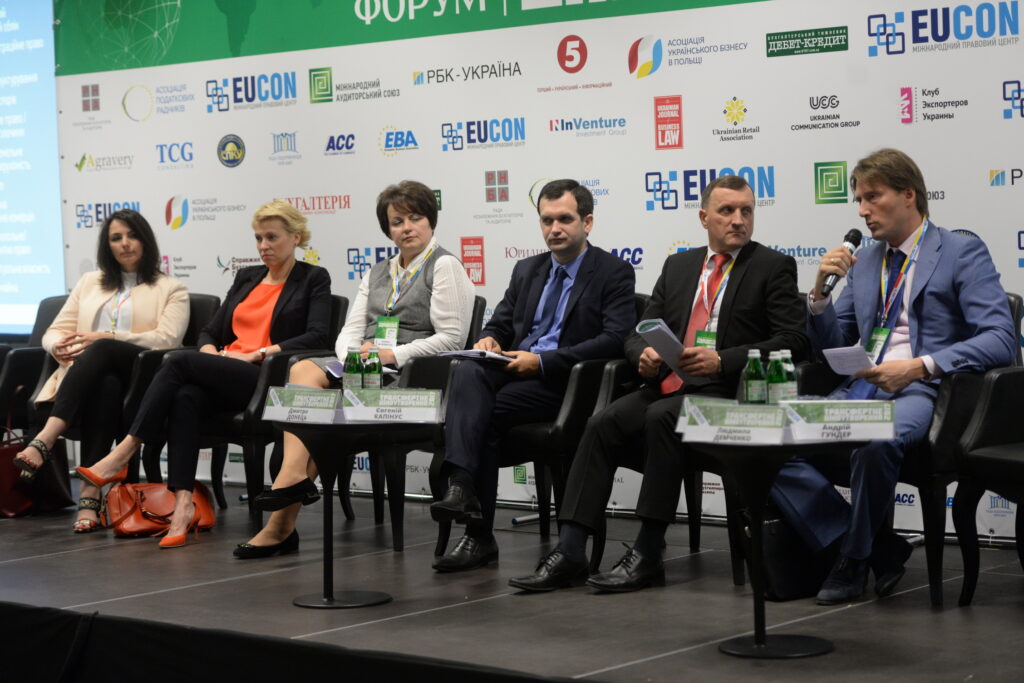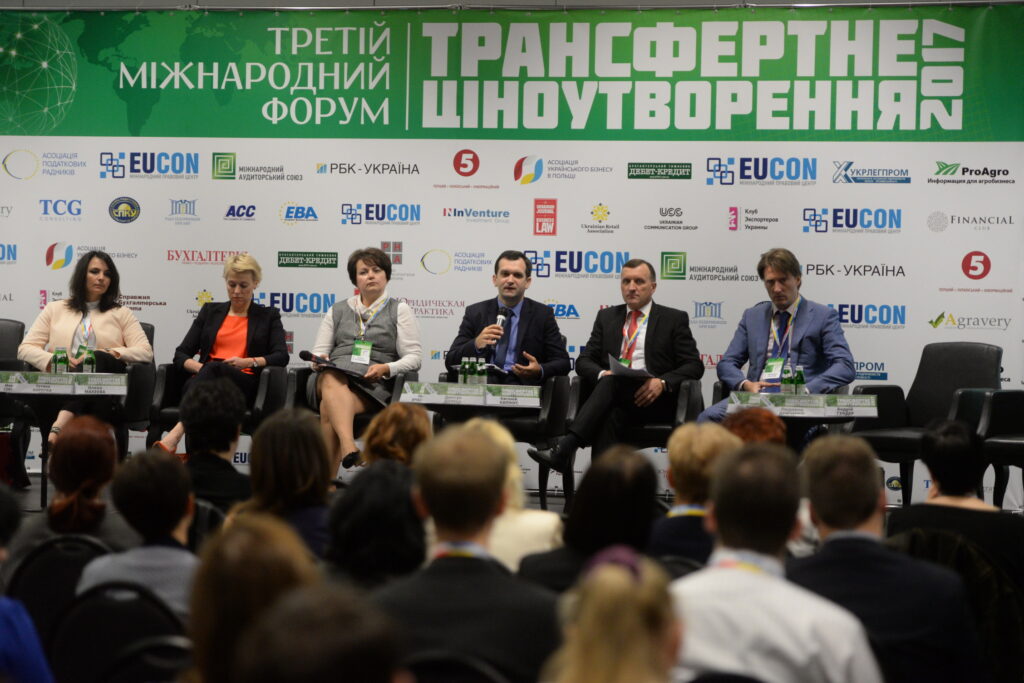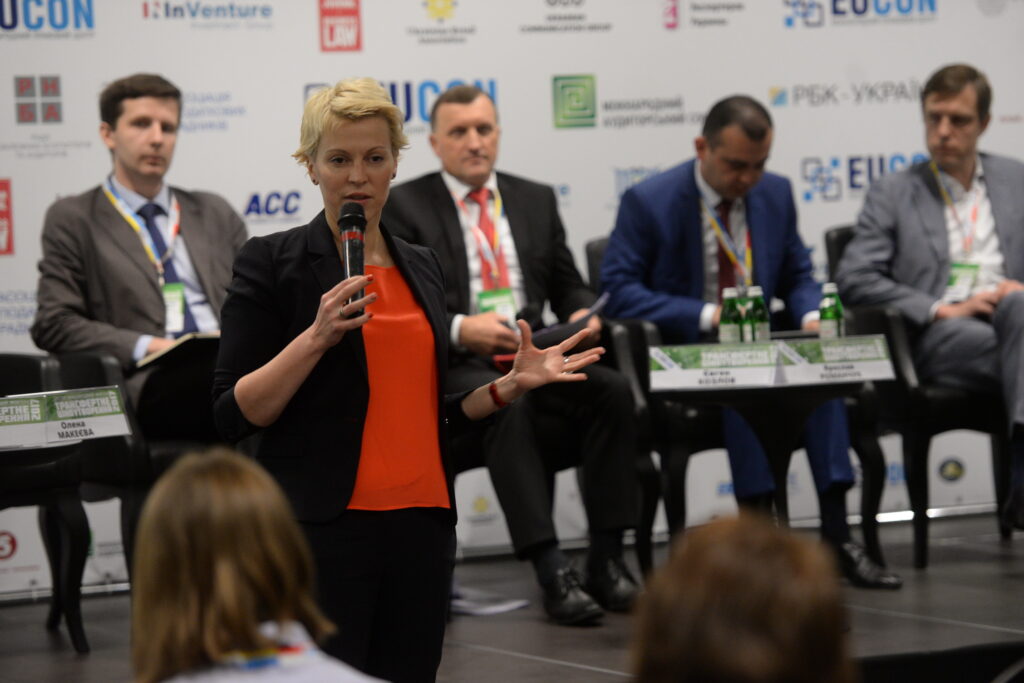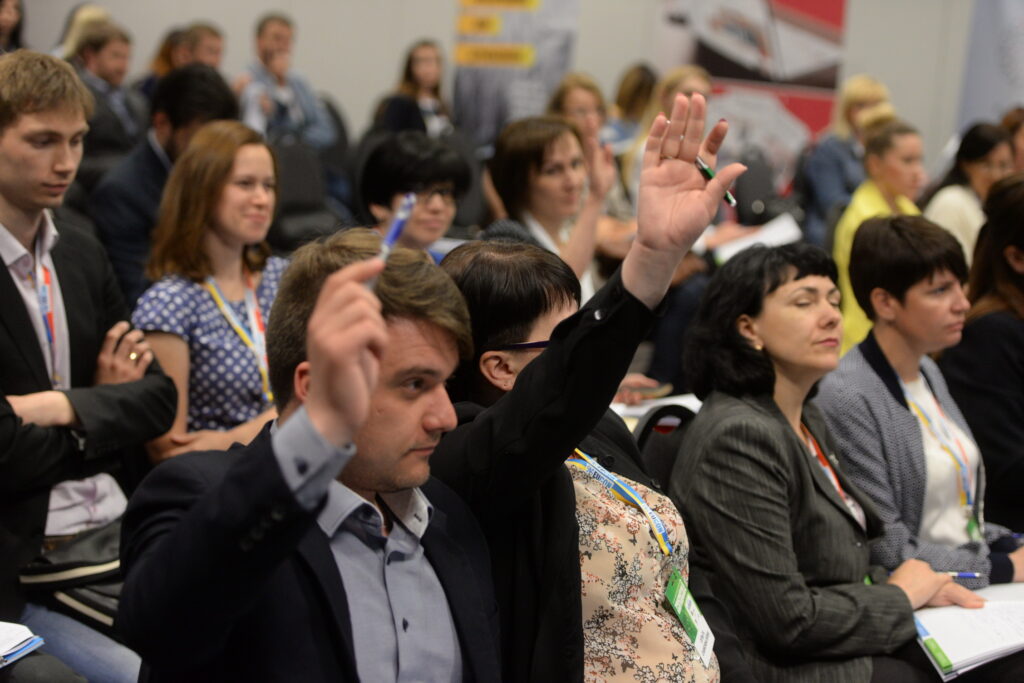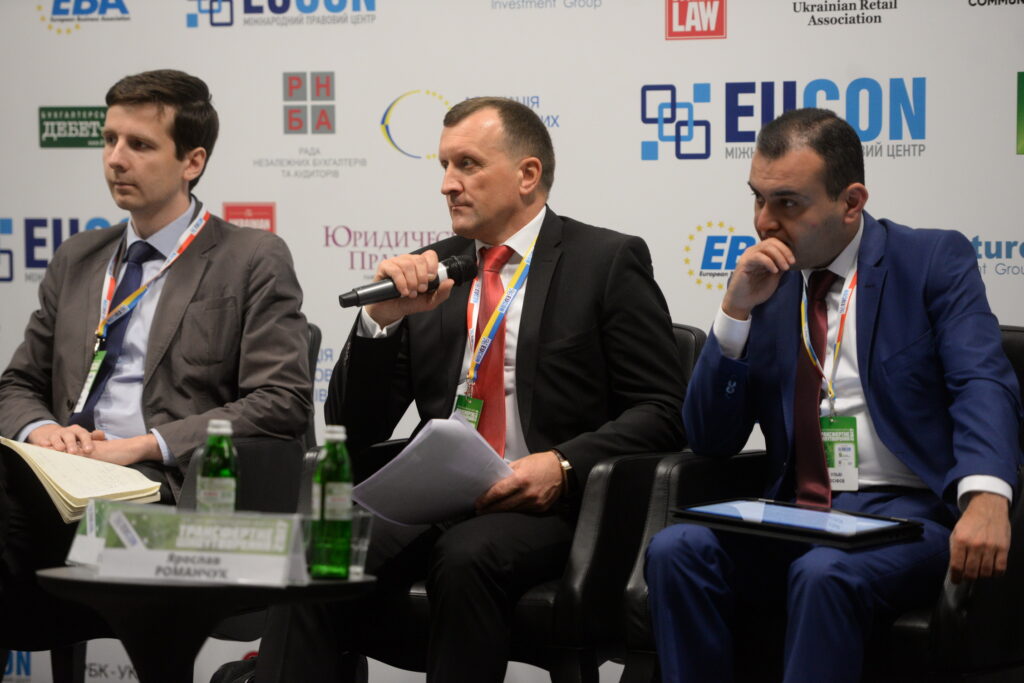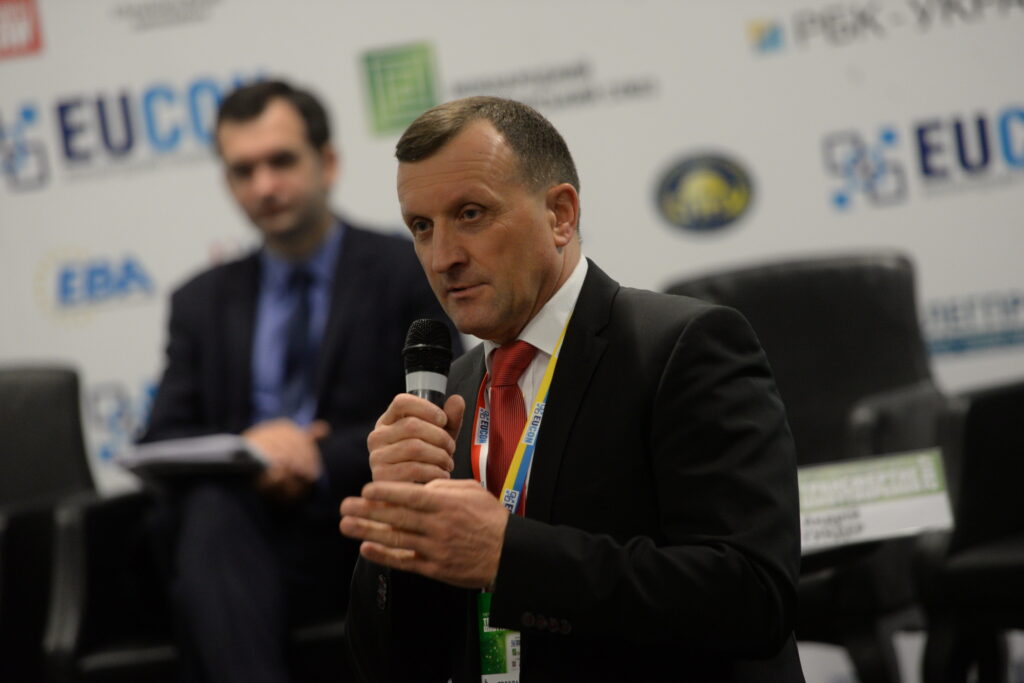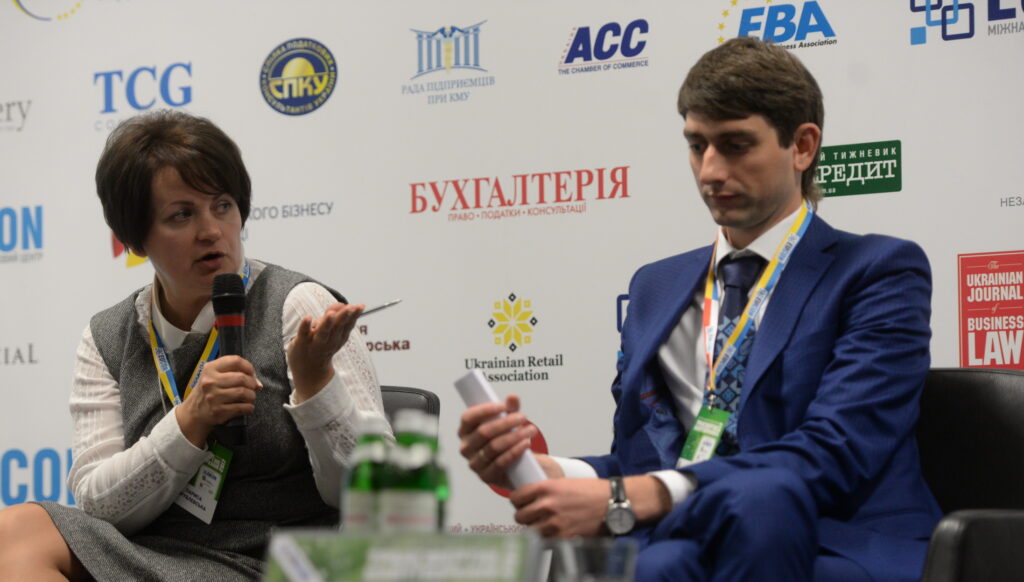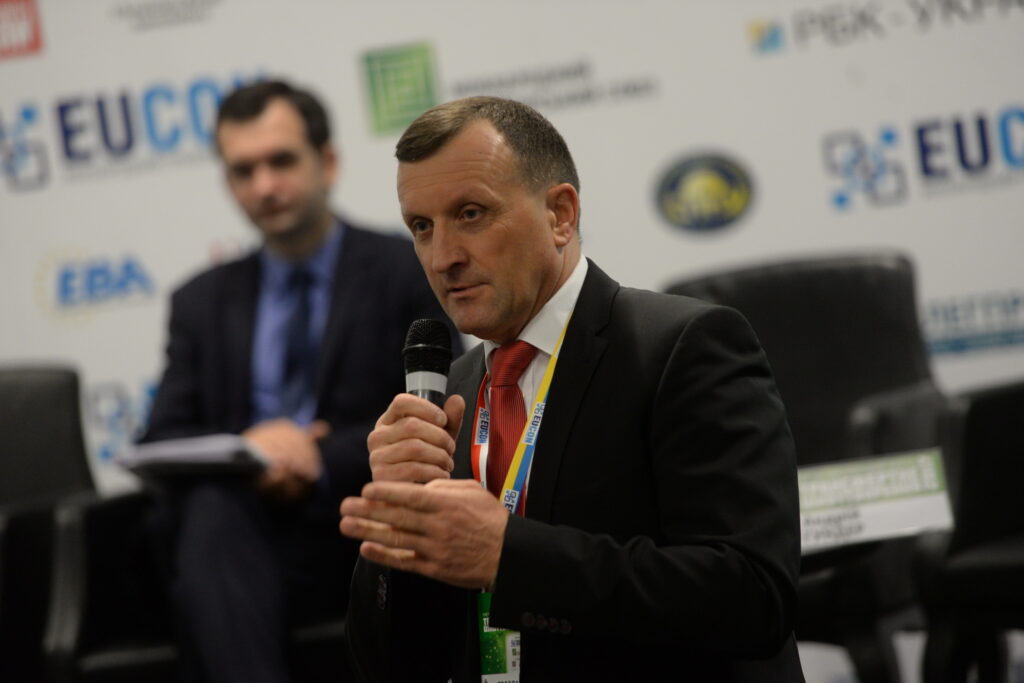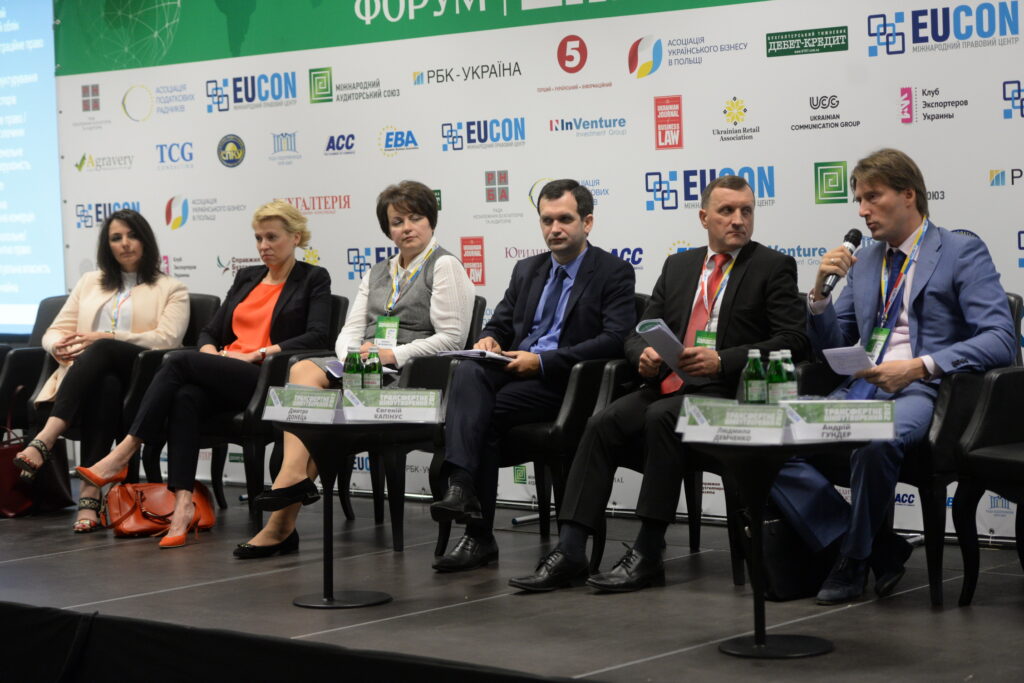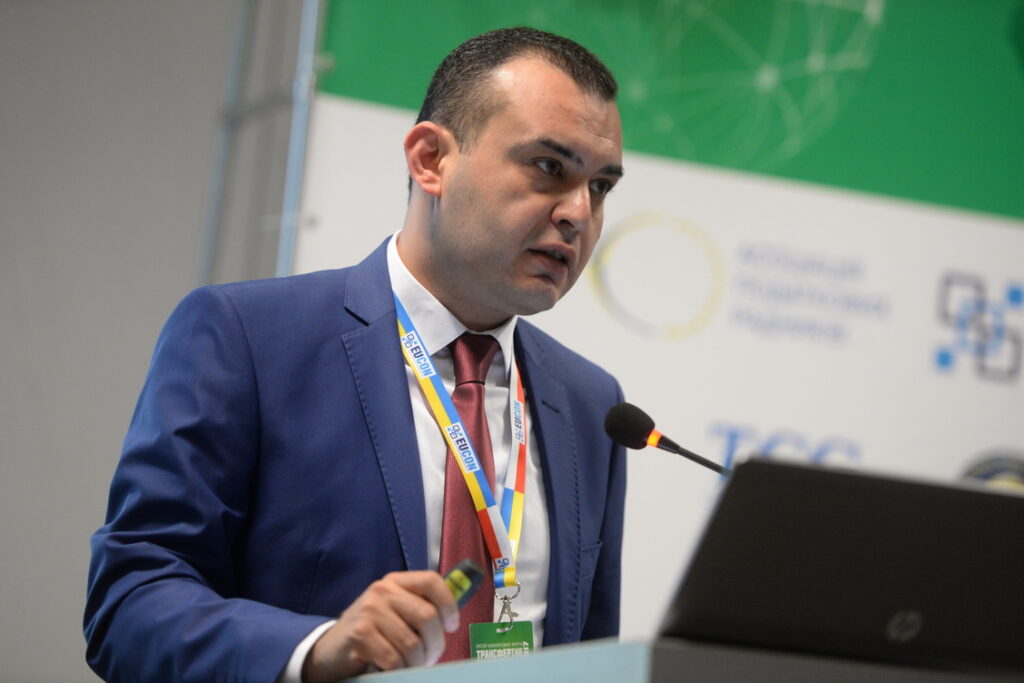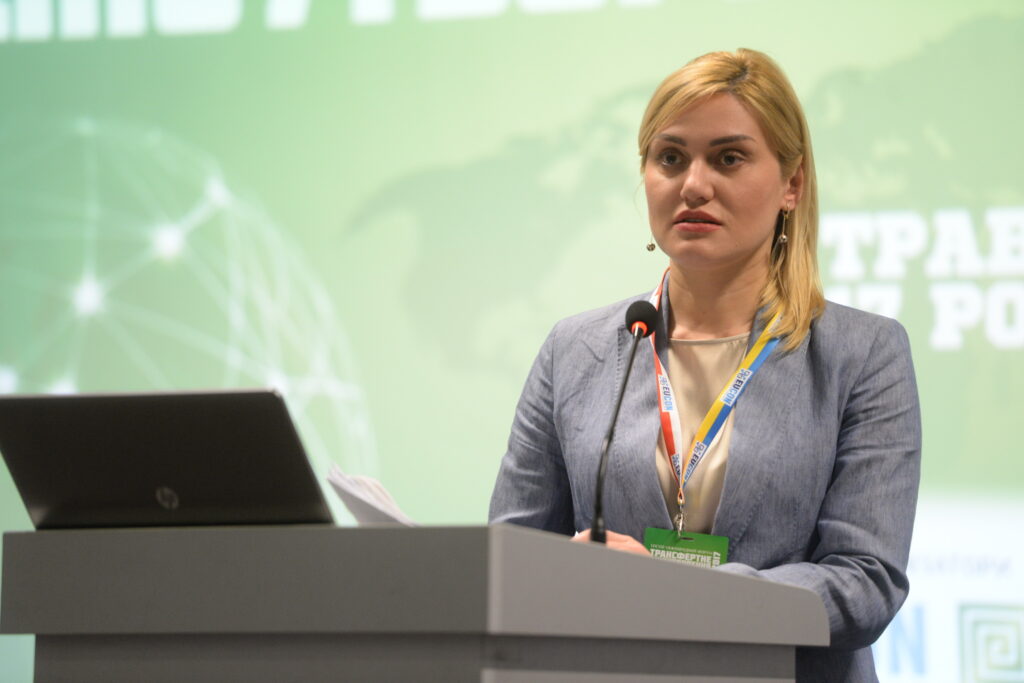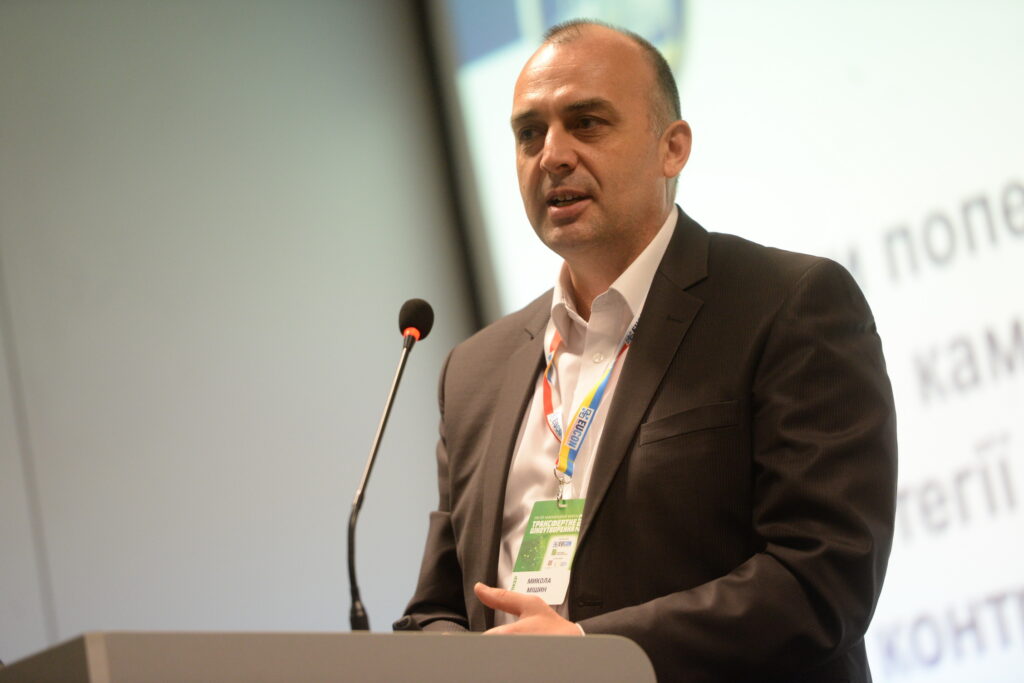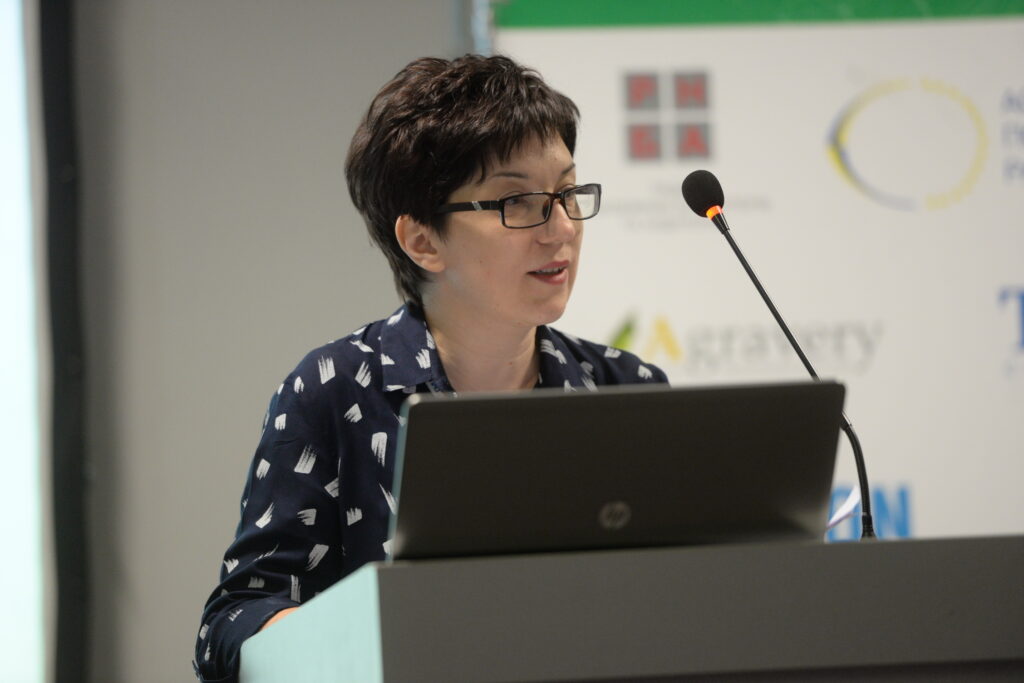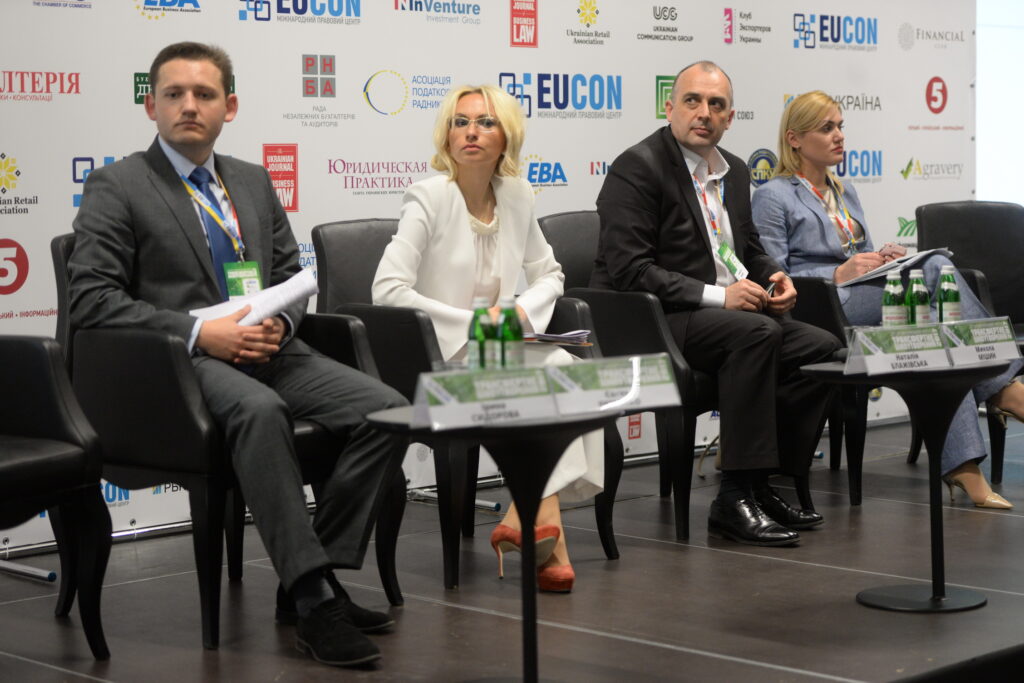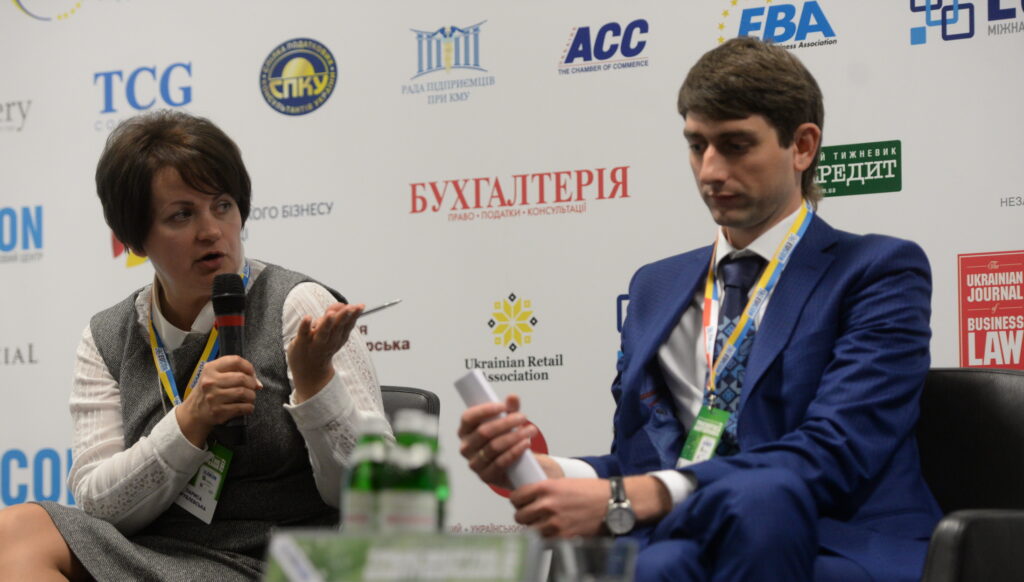
On May 25, 2017 the III International Forum “Transfer Pricing – 2017”, organized by International Legal Center EUCON and International Audit Union, was held in Kyiv. The Council of Independent Accountants and Auditors and Tax Advisors Association were the co-organizers of the event.
This year’s forum brought together about 130 participants and was called to discuss current issues and problems of transfer pricing. Speakers of the forum also addressed some practical issues and peculiarities of TP documentation.
The forum was opened by Yaroslav Romanchuk, managing partner of the International Legal Center EUCON, who said that the main purpose of the event was to create a communication platform that would serve not only as a tool for sharing experiences, thoughts and ideas, but also become a source for reporting the problems, which business faces daily, to the state authorities.
During the first panel discussion, participants discussed the role of transfer pricing in deoffshorization of the Ukrainian economy and ways to improve state control over the transparency of pricing in foreign economic sector.
This panel discussion was attended by Yevgeniy Kapinus – Deputy Minister of Finance of Ukraine, Olena Makeeva – Vice-President of the “Council of Independent Accountants and Auditors”, Tetiana Korotka – Deputy business ombudsman, Mykhailo Sokolov – Deputy Chairman of the “Ukrainian Agrarian Council”, Yaroslav Romanchuk – attorney, managing partner of the International Legal Center EUCON, Larysa Vrublevska – auditor, partner, head of transfer pricing at the International legal center EUCON.
Yevgeniy Kapinus, Deputy Minister of Finance of Ukraine, said in his speech that the Ministry of Finance is doing its best to make the tax system as transparent and understandable as possible, and that the main objective of the Ministry is to continue working closely with the public sector and businesses, as only cooperation can help to find appropriate solutions, make right decisions and create good conditions for development. Because the investment attractiveness of the country depends on its legislation.
Tetiana Korotka, Deputy Business Ombudsman, specified that the majority of complaints received by the business ombudsman were regarding the work of the State Fiscal Service of Ukraine. She also noted that several complaints were related to transfer pricing issues. “Therefore, it is necessary to control the process of implementing the BEPS plan in Ukraine, so that the interests of businesses were taken into account”, – emphasized Tetiana Korotka.
To summarize the panel discussion, partner and head of transfer pricing at the International Legal Center EUCON Larysa Vrublevska mentioned that the Ukrainian legislation in general meets the international standards, but still requires some technical amendments to be made.
Olena Makeeva, Vice President of the “Council of Independent Accountants and Auditors” spoke about the impact of global trends on the Ukrainian tax legislation and prospects of future changes, noting that Ukraine’s accession to the OECD will require implementation of certain BEPS plan steps.
More details on implementation of the BEPS plan in the context of transfer pricing and its impact on global tax legislation were presented by Ulvi Yusifov, member of the UN Committee of Experts on International Cooperation in Tax Matters. He mentioned that there are certain difficulties in finding comparable transactions and definition of intangible assets. It is likely that the administrative burden on taxpayers will increase as well as the number of disputes with tax authorities.
Yevhen Kozlov, Advisor to the Minister of Finance of Ukraine, told about the major changes in transfer pricing legislation, which had been adopted since 01.01.2017, and informed about another regulation by the Cabinet of Ministers of Ukraine that was at that time under preparation and related to legal forms of companies, operations with which will be controlled.
The People’s Deputy Tetiana Ostrikova presented a report on extending the list of non-residents, operations with which will be controlled. “Expanding of the list of non-residents, operations with which will be controlled, will help us to avoid the misuse of “seemingly respectable jurisdictions”, as operations with major trading partners (Switzerland, UK) are currently out of control”, – said Tetiana Otsrikova.
The second session of the forum was devoted to the results of 2016 and expectations for 2017 in the field of transfer pricing.
Mykola Mishyn, Head of Transfer Pricing Audits at the Department of Tax and Customs Audit at the State Fiscal Service of Ukraine, told about the results of previous reporting campaigns. “During the first reporting period 40 entities were fined UAH 9 mln. During the third period the amount of fines has increased 10 times. Seven of twelve audits were related to exporters of agricultural products. The average duration of inspections is 6 months”, – informed Mykola Mishyn. He also gave an example where a taxpayer after receiving a request for documentation increased his revenues by UAH 20 mln., and due to the reduced losses paid income tax of UAH 1.5 mln. and VAT of UAH 4.1 mln.
Oleksandr Lepetiuk, Deputy Head of the the Large Taxpayers’ Office at the State Fiscal Service of Ukraine spoke about the procedure of prior approval of pricing in controlled transactions and possibilities of its improvement in Ukraine. According to Mr. Lepetiuk, agreements on coordination of pricing in controlled transactions will help to avoid disputes with tax authorities. The advantages of such an agreement are the following: elimination of uncertainties, minimization of risks of disputes, improvement of TP understanding by employees in certain sectors.
What should be considered when selecting the most appropriate financial indicator explained Zhanna Biloblovska, auditor of the International Audit Union. She named the main factors of selecting financial indicators: relevance of the indicator, need to consider it in terms of the nature of the controlled transaction, availability of complete and accurate information required for its calculation, degree of comparability between controlled and uncontrolled transactions.
Yuriy Chebotar, tax consultant of the International Audit Union, described the selection criteria and search algorithm for comparable companies. “There is no search procedure for comparable companies in legislation. Therefore, we can apply recommendations from the UN and OECD Guidelines in the context of transfer pricing. The search is conducted in accordance with NACE in the registry in order to identify potentially comparable companies. Herewith the company’s losses can take place only in one period. In addition, a company must not be associated with other entities. It is recommended to exclude a company if an individual is a founder of several companies. Having identified the criteria, the next step is searching for comparable companies. A manual procedure involves checking information about them on the Internet (sites of companies, public registries, etc.)”, – explained Mr. Chebotar.
Analysis of judicial practice in the area of trandfer pricing was performed by an attorney, partner of the International Legal Center EUCON Yevhen Petrenko.
Together with the forum participants he discussed determining positions of the courts when considering the most common categories of disputes with the State Fiscal Service authorities.
There’s an important claim from a taxpayer to the Cabinet of Ministers regarding improper inclusion of Switzerland to the list of low-tax jurisdictions. The country sent a protest note to the Ministry of Foreign Affairs, noting that it does not meet the criteria of Article 39 of the Tax Code of Ukraine. Later, Switzerland was excluded from the list, but the reporting obligations that arose earlier remained in force for Ukrainian companies. “Prosecution of a taxpayer by reason of authorities’ mistake is unacceptable”, – stressed the lawyer.
The last session of the forum was devoted to practical issues and transfer pricing documentation. Larysa Vrublevska, partner, auditor, Head of transfer pricing at the International Legal Center EUCON and Yuriy Chebotar, tax consultant of the International Audit Union, provided practical examples of price justification procedure in transactions of purchasing goods from a non-resident.
Summing up the session, Larysa Vrublevska noted that the example explained should not be taken as a universal basis for all transactions of that type. Each case has its peculiarities and must be analyzed carefully.
Among other speakers there was Grygoriy Sytenko, Legal Affair Group Leader at BASF Ltd., and Mykola Khomenko, Chief Taxes and Fees Adviser at Cargill Ukraine.
In the closing of the forum, Yaroslav Romanchuk thanked all speakers and participants and emphasized that the next forum on transfer pricing will be held in spring 2018.
Photos from Forum can be found here
Media reports about the forum:
Yuridicheckaya Praktika weekly: 1st Report, 2nd Report, 3rd Report, 4th report, 5th report, 6 report; 7 report; 8 report; 9 report; 10 report; 11 report; 12 report.
